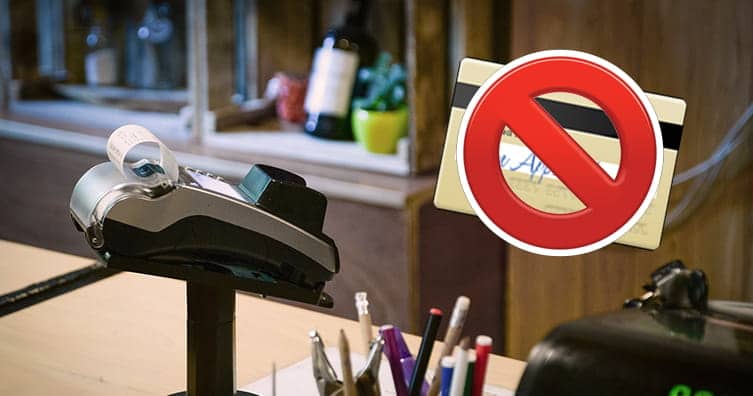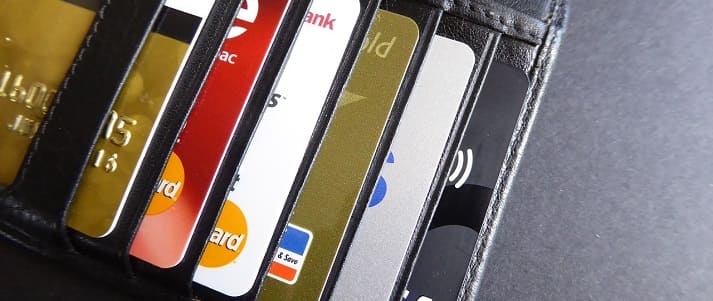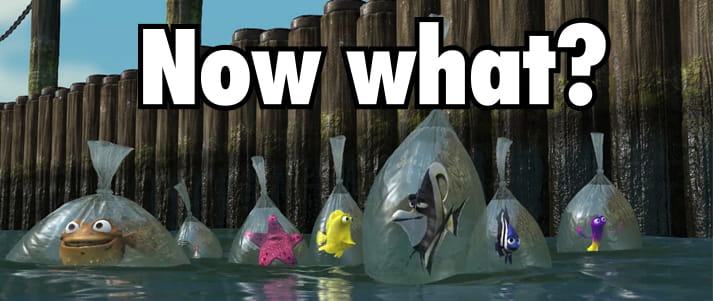Credit and debit card surcharges are now illegal, but you might still have to pay
It's now illegal to charge an additional fee for paying by credit or debit card, but some companies have already found a way to keep charging customers.

The ban on credit and debit card charges officially comes into effect today, but one company appears to have snuck in its own way to keep charging you that extra 50p.
Prior to being made illegal, the law limited credit and debit card charges to whatever it cost the retailer to process a card payment. No profits were allowed on these surcharges.
The fee was usually around the 2% mark, but could reach much as 20% on smaller transactions. Small as they may seem, the Treasury estimates that in 2010 alone the British public spent £473 million on these surcharges!
Good news, then, as it's now illegal to place surcharges on the usage of any debit or credit card, including American Express and other linked ways of paying, such as PayPal and Apple Pay.
The new laws have come about thanks to an EU directive, and they affect any UK company that's selling to UK customers. As they've been written into UK law, Brexit isn't likely to have any effect.
How will the ban on credit and debit card charges affect you?

People who campaigned for the change argue that banning credit and debit card charges will help consumers to get a better deal.
These surcharges were seemingly everywhere, and for that reason you might not realise just how much you could end up saving now that they've been banned. Here are some of the major names who, up until today, charged an additional fee for paying by credit or debit card:
- British Airways (1%, with a maximum fee of £20)
- The DVLA (£2.50)
- Ealing Council (2.5% on council tax payments)
- Easyjet (1%)
- Just Eat (50p per order – but more on them later...)
- Ryanair (2%)
- Sky TV (30p per month)
These are just a handful of the companies who previously imposed the surcharges, but really, the biggest savings will be on the most expensive purchases. As the fee was often a flat rate of 2%, you'd have felt it a lot more when shelling out for a car or an expensive holiday!
How one company has already replaced the surcharge

When the ban was first announced back in July, some people expressed concerns that businesses would just up their prices to make up for the fact that they'd be missing out on the surcharges.
We're yet to see any evidence of this (although it's still early days), but some more sneaky tactics have been spotted. Just days before the ban came into place, student-staple Just Eat conveniently implemented a new 50p 'service charge'.
Perhaps the most striking thing about this move is that the new charge doesn't just affect customers paying by card – it affects everyone. This means that, unlike under the previous legislation that prevented companies from making a profit in this way, there's every chance that Just Eat could be quids in from the charge.
It also means that customers who usually pay by cash will be negatively affected by the change, and will pay more per order than they used to.
In defence of the new policy, Just Eat had this to say:
The 50p charge simply means that along with our restaurant partners, we can continue to deliver the best possible takeaway experience, and applying the charge equally across the customer base ensures fairness for all.
What changes will other companies make?

Banks usually charge large retailers between 10p and 20p for every debit card transaction, and 0.6% for credit cards. These costs will of course add up, and retailers will need to find a way to cover them.
There is also a chance that shops could start refusing card payments altogether, especially smaller retailers.
As yet, no company has come out and said that it will be increasing prices to make up for the loss of surcharges. That doesn't mean that they won't, but companies including Flybe and Premier Inn have announced that they won't be following Just Eat in introducing a new service charge.
Some have argued that even if prices do rise as a result of banning credit and debit card charges, it would still be fairer than the old system as consumers would at least know the cost before they commit to buying.
Speaking in July when the changes were first announced, James Daley, managing director of Fairer Finance, said:
Maybe they will bump the price up. That’s fair game. You have to take customers’ money somehow. And it’s not reasonable to add that cost on at the end of the process. Why not put it in the headline price?
Aside from the threat of rising prices, there have also been questions over how the government will manage to enforce the changes.
Prior to the complete ban on debit and credit card fees, many businesses were guilty of breaching regulations by charging customers more than they pay the bank per transaction. Fingers crossed that now they're completely outlawed, companies charging the fees will stick out like a sore thumb!
It's also worth noting that these new laws don't affect a business' right to set a minimum card payment, so you'll still have to keep some change on you for those trips to the offie.
Don't let companies squeeze some extra pennies out of you – check out our guide to your consumer rights.








